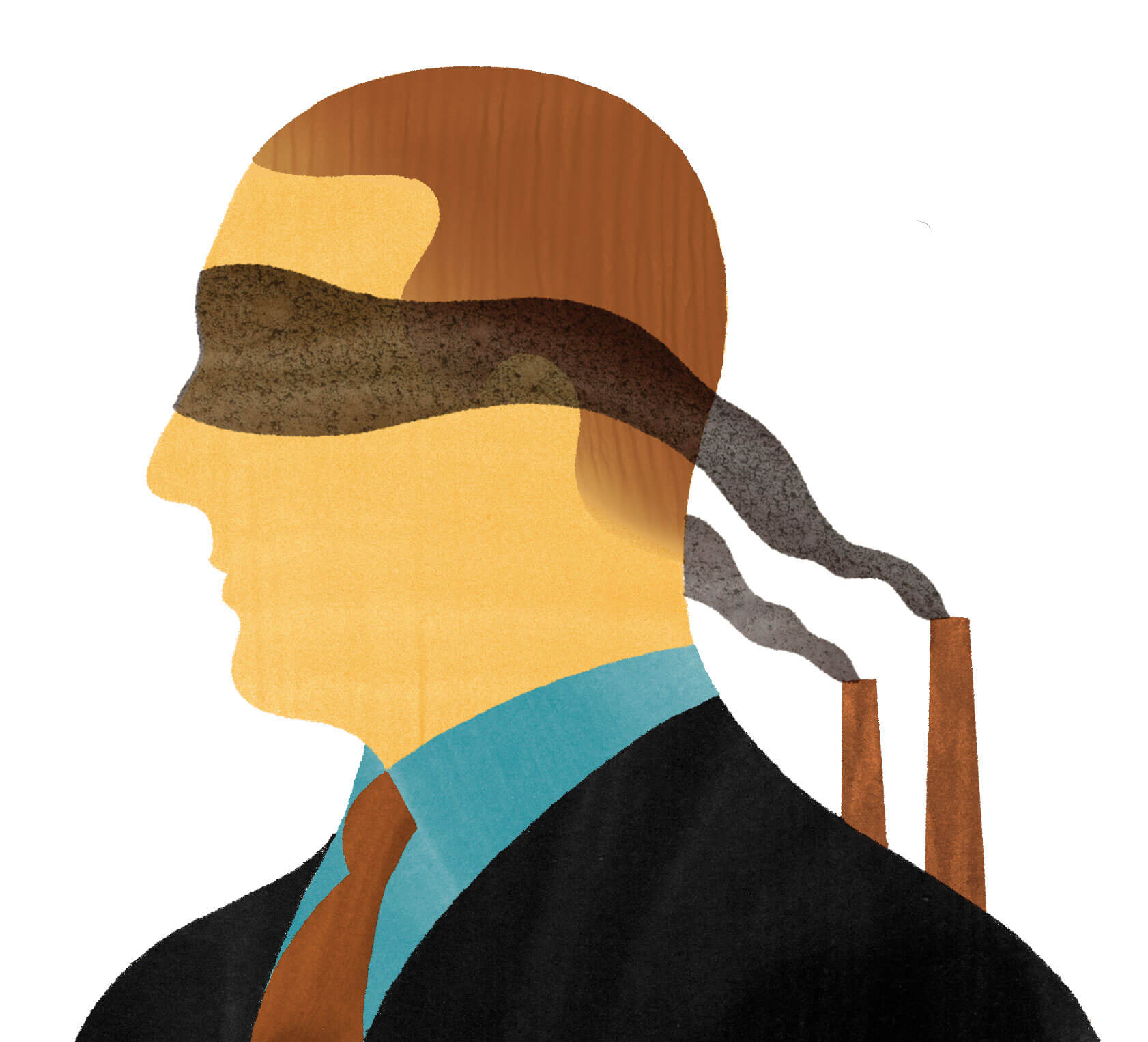
The Art Of Sowing Doubt
It’s easy to make people question facts, says one rhetorician. That’s why we need to change the conversation.
A climate scientist, a French politician, and an industrialist walk into a bar …
That’s the setup for an anecdote, made popular by French philosopher Bruno Latour, that Assistant Professor of English Patrick Love shares to explain his area of research—rhetoric, or in this case, agnotology, which is the study of culturally induced doubt, particularly when it comes to the publication of inaccurate or misleading scientific data (think: climate change doubters).
“Agnotology is a rhetorical framework used that encompasses an anti-intellectual progression of ideas, and it is often invoked by climate skeptics or climate deniers to mitigate arguments of people like us—specialist’s or scientists who study climate to a great degree,” says Love. “It’s a doubt that comes about through a cultural consensus. It doesn’t arise from necessarily one place, but it comes from our collective willingness to doubt or ignore something.”
An example of the rhetoric used by those who reject mainstream climate science goes something like this: A climate scientist presents her position and says, “We need to do this now, it’s essential, and we’ll need to do this in the future.” Then an industrialist, perhaps someone from the coal industry, asks, “Why should we trust you over anyone else?” The sense of doubt cast by the industrialist creates equivalency, or a sense of equal weight between both arguments, says Love.
The industrialist might then ask the scientist if she can say with absolute certainty that what she predicts is going to happen exactly as she predicts it—something no scientist would ever do, says Love.
“With the scientific method … we are only willing to go to 99% because we have a disciplinary duty to acknowledge that we might be wrong about some things along the way,” he says. “So, the industrialist starts by creating that doubt, then goes on to say that academics or specialists are financially motivated—they want their research agenda to continue, they want to continue getting funded, they want to keep studying this problem because it lines their pockets somehow.”
Love says the industrialist would then oversimplify the issue, acknowledging that something might be happening but offering up a retort along the lines of, “It’s far enough in advance,” or, “It’s going to happen in ways we can manage over time.” Lastly, to support his views, the industrialist will find narrow, contradictory studies that counter entire bodies of research, just so he can continue down a path of inaction.
“The agnotological argument, which often comes down to market justification, gives [people] a justification for inaction—or less action—through an appeal to rationality, through saying, ‘Let’s not freak out about this, let’s be calm, let’s move slowly,’” says Love. “The industrialist will say immediately, ‘Well of course I’m motivated by the market: I want to save you money. I might not do what you’re recommending, but your bottom line will be better, and who knows if anything will change.’”
And though Love acknowledges there is no clear antidote to combating the rhetoric used by those who reject mainstream climate science, the more important course of action is to reframe the discussion as one about morals. The state of doubting that climate change is real often comes down to a moral decision, says Love, where a person sides with what is beneficial and profitable to them individually in the short term instead of what is better for our species and the planet in the long term.
“Thinking about it as a moral thing is important, because if all we want to do is save money, then we have to think about what’s really important to us, what our priorities are. We need a planet—that’s the number one priority,” says Love. “There is a coming point where that rationality is going to run out on us. We are facing a crisis and we need to, in a sense, acknowledge that as a moral issue that we face.”
Next, read Part III of this series: Law and World Order.